Story research can be intimidating, thrilling, exhausting. When it comes to writing historical rather than contemporary, it’s doubly so. You must consider dress, transportation, location, accessories and weaponry. Then there are manners, customs, modes of speech … and a sometimes-overlooked aspect of writing the past: mindsets and attitudes. People in different time periods often thought differently about their world than we do today.
One thing never changes, however, and that is that people FEEL. They respond to their lives and circumstances with emotions that are just like ours.
And how do we know this? Because in the absence of photographs, artifacts, or other relics of the past, we have written accounts of people who were there, who described how they felt in various situations. Sometimes what they wrote was almost incredible, given what we think we know about the past.
First-person accounts are referred to as “primary sources.”
Though sometimes the wording is stiff and archaic, I’ve come to love primary sources above all others because, well, they’re like tiny windows into people’s lives.
Some at first glance might seem dry and uninformative, like the transcript I was recently given of a wagonmaster’s account book during the Revolutionary War. The subtitle reads, “A record of his expenses and experiences while running a wagon train from Charlotte to Philadelphia, 1776 – 1778.”
It opens like this (bear with me, it’s a little long):
Memorandom
Be it remember’ed; to call at fredrick town Docter Thompsons- at york town Dutch Doctors 100 yd. North west the court house – at Lancaster Docter Adams left hand side the street west from the court house) Henry Sluber Apothecary North the court house
Memorandom of things to fetch for the family –
- Blue Sagathy for one Suit of clothes
- 1-piece-of-4 Lb.-Linnen
3 pair of Silver Buckles
- 1 raim good writeing paper
- 1 doz. Linen handkerchiefs
- White persian red lining )
) Bonnets
- Black tafoty with trimmings)
- 1 yd. Cambrick-
- ½ yd. Lawn.
2 Calf Skins
- 1 check Silk hank [torn]
1 case bottles full rum ½ gallon Each
- red durant for 2 peticoats
3 bibles
2 pair mens stockings & thread 1 cotton
- 1 dozen knifes and forks
- 1 pair black silk mitts
- 1 Lb pepper 1 Lb Alspice, 1 Lb ginger
- 20 oz. Nutmeg 4 lb Coffee
for Sally Thomson ___(?) yds. pale blue Caliminco y 2 ¼ Cambrick Brown Sattin bone while(?) lining and trimmings made at uncle amoses- 1 ½ yd. fine holland 1womans riding whip horn handel silver 2(?)-fashianable-cap monted(?)
for Mr Avery ) for nancy ghrame
farmers-letters ) 1 basolona handkerchief
1 Calf Skin ) black
New-Voyage-Round-the-World-by-Capt-Cook-Docter-Fraks-
Solandos(?)-2(?)Vo(?)__(?) X
for Jean Sampple (receiv’d
(one pound
11 yds. Crape black and blue (Eight
1 yd. black Ell(?) wide persian
3 yds. black ferritan 1 yd. canvas
3 knifes and forks 1 pair black gloves(?)
What can we glean from this? First of all, we see that spelling and punctuation weren’t standardized at this time, not in fact until sometime in the nineteenth century. Also we see that his family had to be rather well off, as their personal shopping list was fairly extensive, compared to others. We can glean the locations of particular people and businesses during that time. We can see the variety of fabrics used during that time, and what things were purchased as ready-made (for instance, the gloves). We also see reference to one of the published works of the time.
A later entry reveals a subject of interest probably for the record keeper himself:
Be it remembered to call at [torn] Salsbury to Enquire concerning a book concerning the making of potash – to go to the pot ash house in Philadelphia to know how it is made what sort of casts it is put in how much ashes what Labour what time it takes to make a ton –
2 kettles to be bought for the business containing 100 gallons Each two ladles suitable for the business to Ship’d to charlestown to the care of William Glenn’s Merchant-
to enquire the Different method of making pot and Pearl ash –
Then there’s an account of one of his journeys:
Wm. Alexander started from home Monday September 19th paid to Peggy Eliot 3 S for mailing one pair gloves travel’d to Wm. Wallaces broke one stroke of one wheel – Tuesday the 20th paid Wm. Wallace 2 shillings for mending stroke and making 24 wedges for spokes – got tar at Joseph Rogers then travel’d to Mathew Locks and camp’d – got pasture free – Wensday 21st from Locks lost seal of my watch – broke 1 spoke of 1 wheel got it mended with a Clip in Salisbury price 8 pence – paid troy 2 shillings & 4 pence for 1 qt. rum paid 3 shillings for ferryage at yadkin river where a pretty young Virginia woman ferry’d us over from thence to george spreahers 15 mile and camp’t paid 1 s for pasture and 4 D for ½ gallon milk – thrusday 22d travel’d and broke neck yoke & spliced it with hick[ory] and drove to cap’t hermons 15 mile and made a new one paid 2 S and 9 D for 1 bushel oats and 3 pence for a steeple for yoke thence to 1 stanly 7 mile and cam’d paid 8 D for pasture paid Friday 23 from stanly to smiths smiths shop and put in a false spoke in the cart wheel paid 2 S for 3 Clips to go round the spoke thence to campbells 5 miles thence to tates store as took sick on the road Lodged at tates all night free – traveled in all 14 miles Saturday 24th went to Capt. Donnals sent James to Mr. Caldwells for an oz. of barks for which paid 3 shillings in the evening sent by Wm. Donnell to tates for 1 quart wine for which paid 4 S Sunday the 25th in the afternoon took a Severe shake and fever which continued from 1 oClock till almost day next morning – Monday the 26th went to Wm. Rankins staid all night – Tuesday 27th return’d to Capt. Donnells took fit continued from [torn] Clock till day – Wensday 28th Disloaded the cart – started home and traveled to george sprahers and lodged all night paid one Shilling thursday 29th traveled to Slomos? And fed paid six pence then to Salsbury and took fit lay at ker? [torn] till next morning paid 4 S 6 D Friday 30th traveled home paid at huets for feed 1 S at Robert Smiths 8 D for 3? Sheaves oats –
All kinds of interesting story fodder there—information about how long it took to travel from one place to another by wagon, the kinds of goods bought and sold, the sorts of adventures the wagon master met with along the way. I especially found amusing his description of the girl at the ferry. I think we can also glean from the narrative that it either wasn’t intended to be a long journey to begin with, or he took sick and returned home early.
Sometimes a narrative will raise more questions than it answers—but that can feed our stories in other ways, can’t it?
Next time I’ll touch on the impact journals and letters can have on our story writing.
Exercise:
- What did you find interesting in these excerpts?
- What other information did you glean?
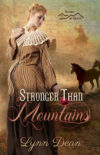
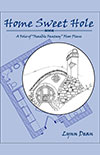
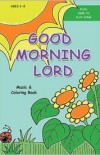

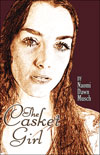
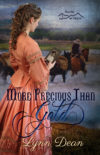
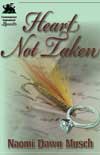

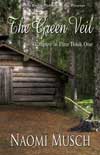
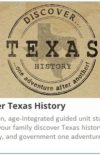
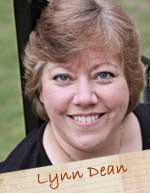





Speak Your Mind
You must be logged in to post a comment.